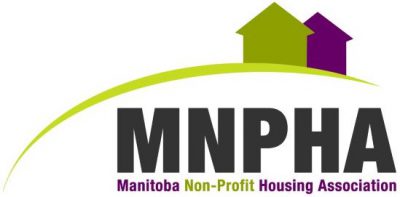WINNIPEG, MANITOBA–(Marketwire – May 28, 2012) – Aboriginal youth who are homeless or at risk of homelessness will benefit from a wide range of support services, announced Lawrence Toet, Member of Parliament for Elmwood-Transcona, on behalf of the Honourable Diane Finley, Minister of Human Resources and Skills Development.
“Our government is working with local organizations to help vulnerable youth with housing needs and is helping to break the cycle of homelessness and poverty,” said Mr. Toet. “We are pleased to partner with Ndinawemaaganag Endaawaad. Through partnerships like this one, we are helping develop and deliver projects that will strengthen our community.”
“Ndinawemaaganag Endaawaad Inc. gratefully acknowledges the support of the Homelessness Partnering Strategy towards the Ndinawe Youth Resource Centre,” said Tammy Christensen, Executive Director, Ndinawemaaganag Endaawaad Inc. “It is important to us to be able to provide a safe place for young people in our community where they can access a wide variety of programs, build positive relationships and feel connected within their community.”
Ndinawemaaganag Endaawaad Inc. is receiving over $120,000 in Homelessness Partenering Strategy funding to provide Aboriginal youth with life skills and employment training, referrals to health services and counselling.
This news release is available in alternative formats on request.
IF THERE IS A DISCREPANCY BETWEEN ANY PRINTED VERSION AND THE ELECTRONIC VERSION OF THIS NEWS RELEASE, THE ELECTRONIC VERSION WILL PREVAIL.
Backgrounder
The Homelessness Partnering Strategy (HPS) is a unique community-based program aimed at preventing and reducing homelessness by providing direct support and funding to 61 designated communities across Canada. The HPS took effect April 1, 2007, with annual funding of $134.8 million for two years. In September 2008, the Government committed to investing more than $1.9 billion in housing and homelessness programs over five years, until March 2014. This includes a renewal of the HPS until March 2014.
As of May 7, 2012, 2 026 approved projects totalling over $685 million have been funded under the HPS to prevent and reduce homelessness in Canada.
The HPS provides structures and supports that help people who are homeless or at risk of homelessness achieve self-sufficiency and full participation in society. This model seeks to address homelessness by working in partnership with the provinces and territories, other federal departments, as well as with communities and the private and not-for-profit sectors.
The availability of safe, stable housing and related supports is an important element in addressing homelessness and helping individuals who are homeless achieve greater self-sufficiency and a better quality of life. The Government’s investments are creating jobs, stimulating local economies and improving the quality of life for many Canadians.
By working with all our partners, we will maximize results to make a lasting difference in the lives of vulnerable Canadians. The HPS provides the support that our community partners are seeking.
The HPS encourages a housing-first approach which recognizes that housing stability is an important first step in addressing homelessness, and is necessary for the success of other interventions such as education and training, life skills development or management of mental health issues.
For more information on the HPS and the seven funding streams, please visit www.hrsdc.gc.ca/homelessness.

Recent Comments